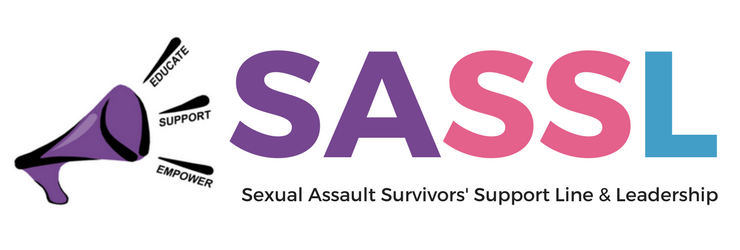Survivor-Centric
SASSL is a survivor-centric, feminist organization that incorporates an anti-oppressive and anti-racist framework of practice.
We understand that there are many factors that influence people’s lives, choices and identities. Our volunteers are trained to recognize and support the diverse needs and experiences of survivors. SASSL aims to provide service that is equity-based. In so doing, we recognize the multiple oppressive systems and hierarchies that contribute to sexual violence including patriarchy, racism, white supremacy, colonialism, classism, cissexism, heterosexism, and ableism.
We also recognize that those most impacted by sexual violence and historically at the forefront of the anti-violence moment have been women of colour, trans and genderqueer, and Indigenous women and two-spirit people. Therefore, we aim to engage in work that connects to disability justice, racial justice, gender self-determination, decolonization, and queer and trans liberation.
Anti-Oppressive & Anti-Racist
SASSL strives to create a space which supports, recognizes, respects the different experiences that survivors from similar and different backgrounds face due to race, religion, ethnicity, gender, and/or sexual orientation.
We acknowledge and are responsible for challenging the intersectional nature of violence and oppression which includes anti-black racism, Islamophobia, colonialism, patriarchy, white supremacy, classism, cissexism, heterosexism, and ableism. We also encourage the active participation of people in our organization who reflect the diversity of the York University community. SASSL further commits to engaging in work that is explicitly body positive and sex- positive. This includes supporting people that choose abstinence and engage in sex-work.
We also recognize that incorporating an anti-oppressive framework requires continual action and work. This work requires both ongoing organizational and self-work.
Intersectional Feminist
SASSL recognizes that sexual violence is gender-based, race-based, and class-based issue. We also recognize that there is an uneven balance of power in our society that results in majority of sexual violence being perpetrated by cis-men and the majority of those most impacted by sexual violence being cis-women, trans people, and non-binary gender people. We explicitly connect this to hyper-masculinity, patriarchy, misogyny, rape-culture, white supremacy and settler-colonialism.
We recognize that people who face multiple forms of oppression including anti-black racism, Islamophobia, colonialism, patriarchy, white supremacy, classism, cissexism, heterosexism, and ableism are at a higher risk of experiencing sexual violence and face more barriers to accessing services after the fact. In so doing, we understand and acknowledge the intersectional nature of oppression.
Further, we recognize and seek to challenge the ways traditional ‘violence against women frameworks’ have historically prioritized a particular type of survivor- namely white, cisgender, straight, able-bodied women. In addition, we work to provide an equally effective and respectful service for survivors who identify as men.
